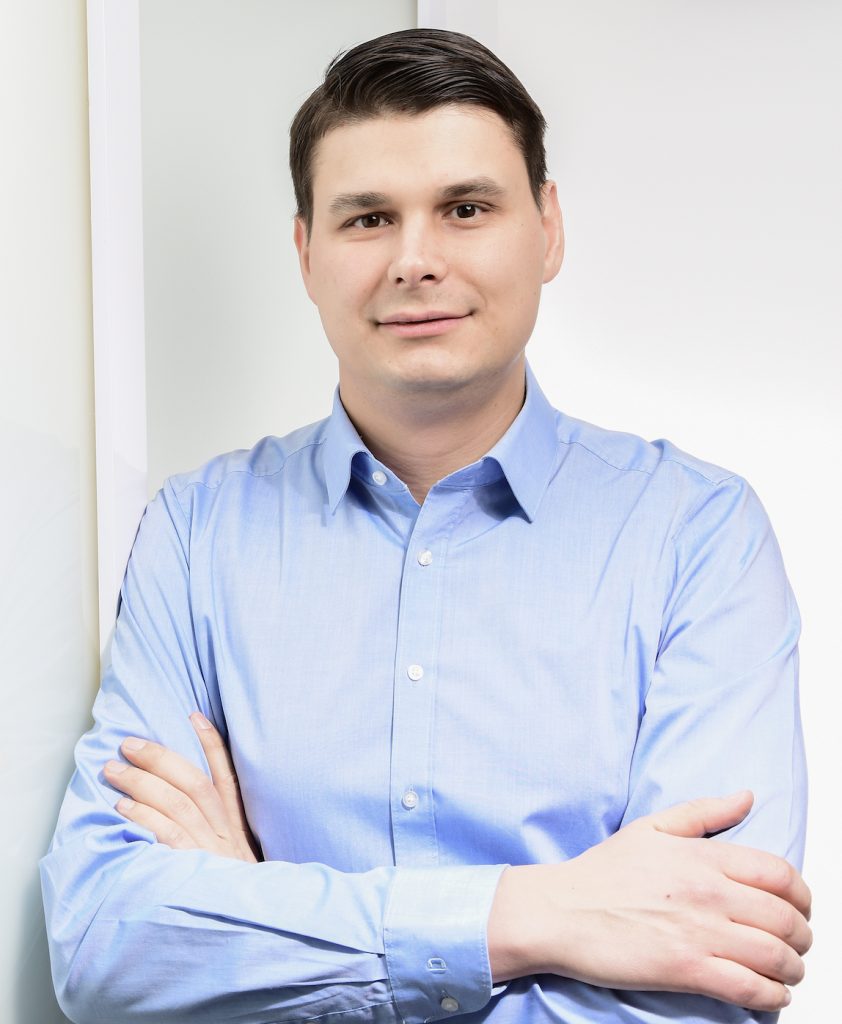
Title: Completing Knowledge Graphs using Data from the Open Web
Prof. Dr. Christian Bizer from Universität Mannheim.
Abstract: Current research on knowledge graph completion focuses on employing graph embeddings for the task of link prediction. But knowledge graph completion is more than link prediction and tasks such as adding formerly unknown long-tail entities to the graph, extending the schema of the graph with additional properties, and completing and updating numeric values are often equally important tasks. In the talk, Christian Bizer will review recent results on using data from large numbers of independent websites to accomplish these tasks. He will focus on two types of web content – relational HTML tables and semantic annotations within HTML pages – and will discuss the potential of these types of content for set completion, schema extension, and fact checking, as well as their utility as training data for matching textual entity descriptions.
Bio: Christian Bizer explores technical and empirical questions concerning the development of global, decentralized information environments. His current research focus is the evolution of the World Wide Web from a medium for the publication of documents into a global dataspace. Christian Bizer initialized the W3C Linking Open Data community effort which is interlinking large numbers of data sources on the Web. He co-founded the DBpedia project which derives a comprehensive knowledge base from Wikipedia. He also initialized the WebDataCommons project which monitors the adoption of schema.org, RDFa, JSON-LD, Microdata, and Microformats on the Web by analysing large Web crawls. His technical research focuses on the integration of data from large numbers of Web data sources and includes topics such as information extraction, identity resolution, schema matching, data fusion, and data search. Christian Bizer holds an appointment as full professor at the University of Mannheim, where he leads the Focus Group Web-based Systems of the Data and Web Science Group. Before moving to Mannheim, he headed the Web-based Systems Group at Freie Universität Berlin.

Title: Cognitive Graph for Understanding, Reasoning, and Decision
Prof. Jie Tang from Tsinghua University.
Abstract: We propose a novel CognitiveGraph framework for learning with knowledge graphs. Inferring new facts from existing knowledge graphs (KG) with explainable reasoning processes is a significant problem and has received much attention recently. The proposed CognitiveGraph framework is founded on the dual process theoryin cognitive science. The framework gradually builds a cognitive graph in an iterative process by coordinating an implicit extraction module (System 1) and an explicit reasoning module (System 2). While giving accurate answers, our framework further provides explainable reasoning paths. Specifically, our implementation based on BERT and graph neural network (GNN) efficiently handles graph with tens of millions of nodes. The framework has many applications. For example, for multi-hop reasoning-based QA (e.g., HotpotQA), it achieves a winning joint F1 score of 34.9 on the leaderboard, compared to 23.6 of the best competitor.
Bio: Jie Tang is a Full Professor and the Associate Chair of the Department of Computer Science and Technology at Tsinghua University. His interests include data mining, social networks, knowledge graph, machine learning, and artificial intelligence. He has been visiting scholar at Cornell University, Hong Kong University of Science and Technology, and Southampton University. He has published more than 300 journal/conference papers and holds 20 patents. He served as PC Co-Chair of CIKM’16, WSDM’15, Associate General Chair of KDD’18, and Acting Editor-in-Chief of ACM TKDD, Editors of IEEE TKDE/TBD and ACM TIST. He leads the project AMiner.orgfor academic social network analysis and mining, which has attracted more than 10 million independent IP accesses from 220 countries/regions in the world. He was honored with the UK Royal Society-Newton Advanced Fellowship Award, CCF Young Scientist Award, NSFC for Distinguished Young Scholar, and KDD’18 Service Award.

Title: Knowledge Graphs and Semantic Technologies for Industry 4.0.
A.P. Evgeny Kharlamov, from Bosch Center for AI and University of Oslo
Abstract: Industry 4.0 is a global trend that aims at digitalising and automating production processes from product design to manufacturing and delivery. This requires to integrate and analyse large amounts of heterogeneous data such as experts knowledge, standards and good practices, corporate documentation and databases, engineering knowledge, and sensor data. Semantic technologies can help in this by offering modeling, querying, diagnostic, and analytical techniques and languages. While knowledge graphs can serve as a flexible format for data integration. In this talk we will review some Industry 4.0 challenges, approaches, and exemplify how they can be addressed with knowledge graphs and semantics.
Bio: Evgeny Kharlamov is a Research Scientist at the Bosch Centre for Artificial Intelligence and an Associate Professor at the University of Oslo. Before joining Bosch he was a Senior Research Fellow at the University of Oxford. Evgeny’s research is focused on AI, knowledge graphs, semantics technologies, data mining, machine learning, and graph analytics, with applications in Industry 4.0 and digital twins. Evgeny has 110+ publications, won the best in-use paper award at ISWC’17, was a runner-up at ISWC’16, and won the best demo award at ISWC’15. Evgeny played a leading role in Oxford’s participation in a large scale EU funded Optique project on end-user oriented access to industrial Big Data. He was the (co-)PI on several projects including an industry-funded with Siemens Corporate Technology on semantic diagnostics of complex industrial production systems and on analytics and model management. Evgeny raised or participated in raising of more than 1,8M EUR of research funding.
